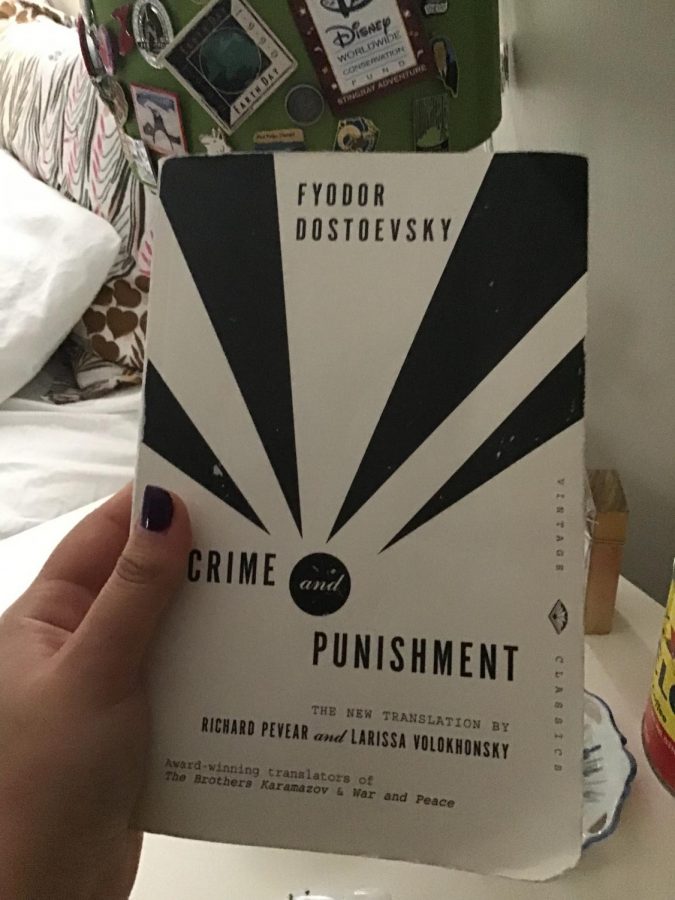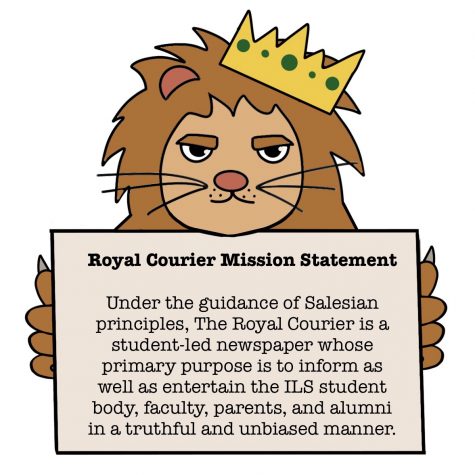Classic Literature Review: Crime and Punishment
The writer’s personal copy of Crime and Punishment.
September 19, 2021
First written and published in 1866, Crime and Punishment is an introspective story that delves into the inner workings of the human mind to examine the consequences of guilt on the soul. Originally written in Russian by Fyodor Dostoyevsky, it has been translated into numerous languages.
Reading it over the summer as a requirement for AP Literature, makes it easy to see why it has earned its place among “the classics.” The novel deals incredibly well with heavy topics, and though it was written in the 1800’s, its messages and themes still ring true today. Some might even find the characters relatable.
For some, the vocabulary may be hard to understand. Many parts of the novel are challenging either because of a possible disparity in the English translation, or because the diction is simply tricky. Luckily, there is SparkNotes which offers a comprehensive overview of the novel which helps to appreciate as well as understand it further. Ideally, it is best for avid readers to glean their own lessons and meanings from books, but if it is for a grade, don’t take any chances. Considering reading this book? If so, invest in the SparkNotes overview and the Pevear/Volokhonsky English translation.
That being said, the story is certainly still worth a read though many may not be ready for what it teaches about the human mind and psyche. Jumping at the opportunity to read it meant being exposed to its deep, psychological, and dramatic prose, aspects which make enjoy literature enjoyable. These adjectives are all the more truthful, keeping their promise, because the book was indeed all of those things and much more.
Crime and Punishment seeks to demonstrate how heavily sin and guilt can weigh on the soul, and the irrational, dangerous, and sometimes downright insane things it can cause a person to do. The story follows a man named Raskolnikov, allowing the reader a glimpse into his mind to observe his mental struggle after he commits a terrible crime and deals with the consequences, in agonizing detail. The reader notices the changes in Raskolnikov’s mentality as he finds himself alienated from society and in a constant state of fear and anxiety. The novel has some aspect of social commentary as well, exhibiting how extreme poverty in a large urban area can breed social ills like hunger, thirst, crime, and well, later, punishment.
Dostoyevsky’s writing style is interesting, and a bit like Raskolnikov. The sentences are either very short and choppy, or long, flowing, and unpredictable, much like the mind of someone who is spiraling, wracked with guilt. That kind of structure throughout the story pulls the reader in to feel the same emotions as Raskolnikov does in real time, and just another reason why Crime and Punishment is such an iconic piece.
Highly recommended, Crime and Punishment provides an excellent view into the human mind, scarily accurate social commentary, and touches the emotions, by encouraging readers to sympathize with a criminal. It’s one of the best books, and though it was a class requirement, anyone who enjoys a dramatic and overly dense, deep, almost indecipherable read should pick Dostoyevsky’s to get there. Be sure to purchase the Pevear/Volokhonsky English translation, and the SparkNotes (for testing purposes!). If, on the other hand, psychological drama, light gore, and dense wording are not your cup of tea, skip it. Happy reading!















